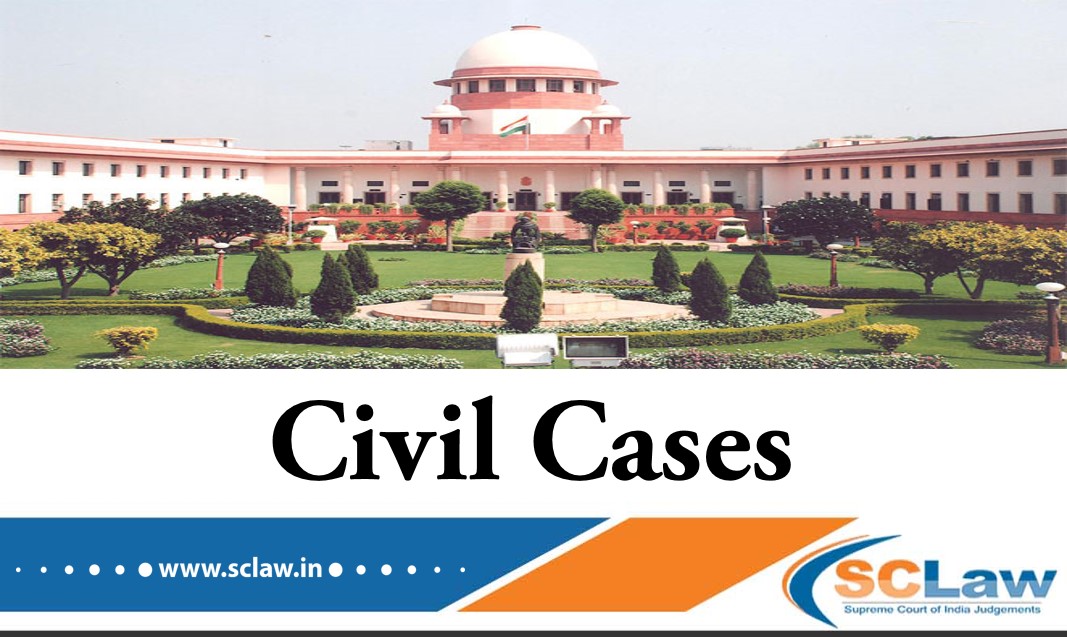Examination of reports – The case arises of alleged ill-treatment of appellant by her husband and her father. The case is going on since 29th July, 1995. Appellant came up against the order passed by the Metropolitan Magistrate on 29th July, 1995 ordering to be admitted to Delhi Psychiatry center, 35, Defence Enclave, Vikas Marg, New Delhi, for observation and treatment
(1997) 2 Crimes 62 : (1997) 5 JT 120 : (1997) 3 SCALE 761 : (1997) 5 SCC 346 : (1997) 1 UJ 736 SUPREME COURT OF INDIA ANAMIKA…
A junior officer belonging to Scheduled Castes or Scheduled Tribes, by operation of Article 16(1) read with Atricle 16(4) and 16(4A) would steal a march over his erstwhile seniors in the lower cadre and get promotion – The principle of reservation in promotions would be applicable where the Scheduled Castes and Scheduled Tribes are not adequately represented in promotional posts
(1996) 3 AD 313 : (1996) 73 FLR 986 : (1996) 3 JT 439 : (1996) 3 SCALE 44 : (1996) 5 SCC 167 : (1996) 3 SCR 266…
Vacancies of drivers – The respondent was initially appointed as a daily-wager in Guntur Municipality. After completion of 5 years of service as NMR he was regularized. It is the claim of the respondent that during this period he was working as a driver and, therefore, after regularisation as a Class IV employee he should be assigned the duties and the pay scale of driver
(1998) 8 SCC 380 : (1998) SCC(L&S) 1591 SUPREME COURT OF INDIA COMMISSIONER, GUNTUR MUNICIPALITY — Appellant Vs. B. CHRISTUDASU — Respondent ( Before : S. P. Kurdukar, J;…
Penal Code, 1860 – Section 376 read with Section 90 – Criminal Procedure Code, 1973 – Section 378 – Rape – Acquittal by High Court – Misconception of fact – If consent is given by prosecutrix under misconception of fact, it is vitiated – Accused had sexual intercourse with prosecutrix by giving false assurance to prosecutrix that he would marry her –
AIR 2014 SC 384 : (2014) 1 CCR 28 : (2014) CriLJ 540 : (2014) 1 JCC 398 : (2014) 1 JT 315 : (2014) 1 RCR(Criminal) 173 :…
Accident—Proof of rashness and negligence on the part of the driver of the vehicle, is sine qua non for maintaining an application under Section 166 of the M.V. Act. Document—Admissibly of—Once a part of the contents of the document is admitted in evidence, the party bringing the same on record cannot be permitted to turn round and contend that the other contents contained in the rest part thereof had not been proved.
2007(3) LAW HERALD (SC) 2513 IN THE SUPREME COURT OF INDIA Before The Hon’ble Mr. Justice S.B. Sinha The Hon’ble Mr. Justice Markandey Katju Civil Appeal No. 2526 of…
Extent of share—In absence of terms and conditions of the joint venture having not been reduced to writing, conduct of the parties how they dealt with affairs of the business would be relevant.
2007(3) LAW HERALD (SC) 2505 IN THE SUPREME COURT OF INDIA Before The Hon’ble Mr. Justice S.B. Sinha The Hon’ble Mr. Justice Markandey Katju Civil Appeal No. 7318 of…
Agreement to sell—During pendency of suit, contract becomes impossible—Specific performance of such contract not possible.
2007(3) LAW HERALD (SC) 2503 IN THE SUPREME COURT OF INDIA Before The Hon’ble Mr. Justice H.K. Sema The Hon’ble Mr. Justice Lokeshwar Singh Panta Civil Appeal No. 814…
District Development Officer who is vested with the executive powers of the District Panchayat is not required to obtain prior or even subsequent orders of the President of the District Panchayat.
2007(3) LAW HERALD (SC) 2489 IN THE SUPREME COURT OF INDIA Before The Hon’ble Mr. Justice C. K. Thakker The Hon’ble Mr. JusticeP.K. Balasubramanyan Civil Appeal No. 3340 of…
Injunction–Since a Bank Guarantee or a Letter of Credit is an independent and a separate contract and is absolute in nature, the existence of any dispute between the parties to the contract is not a ground for issuing an order of injunction to restrain its enforcement of.
2007(3) LAW HERALD (SC) 2481 IN THE SUPREME COURT OF INDIA Before The Hon’ble Mr. Justice Tarun Chatterji The Hon’ble Mr. Justice P.K. Balasubramanyan Civil Appeal No. 3522 of 2007…
Having regard to the fact that the application filed by the plaintiffs permission to sue as an indigent person remained pending for over 10 years–The application moved by the defendant for setting aside the order to proceed ex-parte against it deserved to be allowed.
2007(3) LAW HERALD (SC) 2480 IN THE SUPREME COURT OF INDIA Before The Hon’ble Mr. Justice G.P. Mathur The Hon’ble Mr. Justice P.K. Balasubramanyan Civil Appeal No. 3551 of…















